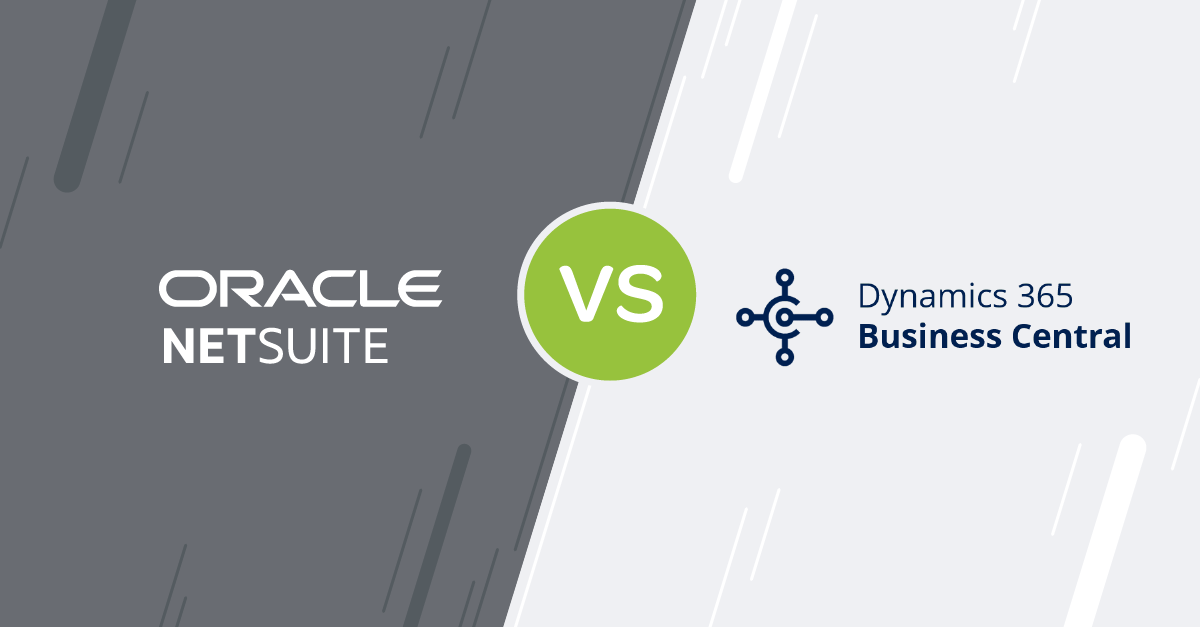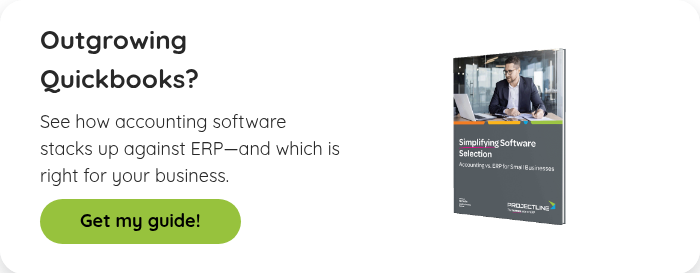Blog
Share this
What is NetSuite and Why is it the Top Cloud ERP for SMEs?

by Jalene Ippolito on December 06, 2023
Oracle NetSuite is the leading cloud ERP (Enterprise Resource Planning) solution for growing businesses. It’s a unified business system that consolidates core functions into a central database to automate and simplify processes.
As the pioneer of cloud ERP, NetSuite launched their first SaaS (software as a service) solution in 1998 and was acquired by Oracle in 2016. This acquisition made Oracle the biggest software services provider in the world and gave NetSuite additional resources to become an even stronger player in the mid-market ERP space.
Fast forward to today – NetSuite has tens of thousands of customers in over 100 countries, ranging in size from start-up to enterprise. In recent years, they’ve been consistently ranked as a market leader by various sources.
- Placed in the Leaders quadrant of Gartner’s 2023 Magic Quadrant for Cloud ERP for Product-Centric Enterprises
- Ranked in Third Stage Consulting’s Top 10 ERP Systems for 2024 report.
What does NetSuite do?
Think about the core functions in your business – accounting, customer management, inventory management, purchasing, etc. The list will vary based on your industry and business structure. One of NetSuite’s greatest strengths is the modular design – every implementation starts with the core modules that every business needs:
- ERP: covers standard financial capabilities, order management, purchasing, item and basic inventory management, and basic project management
- CRM: includes contact management, service and marketing/sales automation
From there, you can add modules with advanced functionality to build out your solution, either in the initial implementation or over time as you grow.
Some examples of NetSuite modules include:
- Fixed Assets Management
- Financial Planning & Budgeting
- Production Management
- Material Requirements Planning (MRP)
- Supply Chain Management
- Advanced Inventory Management
- Warehouse Management (WMS)
- B2B & B2C eCommerce
- Human Capital Management (HCM)
- And many more
The modules that your business needs will depend on your industry and your individual business requirements. We recommend working with a NetSuite implementation partner to help you select the right modules, so you get the functionality you need without paying for unnecessary modules. They can also identify opportunities to customize your NetSuite solution where necessary.
Here’s a quick explanation of how the NetSuite platform supports growing businesses.
Who uses NetSuite?
Different ERP solutions have different strengths based on the depth of functionality for certain industries. In our experience, NetSuite is a great fit for these industries:
- Wholesale Distribution: NetSuite offers tools that eliminate guesswork in inventory management to ensure you have the right product, at the right time, for the right customer.
- Manufacturing: In a manufacturing environment, visibility is key to your success. NetSuite integrates inventory management, production processes and accounting to maximize your competitive advantage in the marketplace.
Why thousands of SMEs love NetSuite...
With so many ERP solutions to choose from, what makes NetSuite the leading choice? This could be a pretty long list, but we’ve narrowed it down to the top five.
- Access, anywhere – The NetSuite public cloud platform means you have access to your system anywhere, so you can maintain productivity at the office, at home or on the road.
- IT simplicity – The cloud platform also lowers IT infrastructure costs, as you’re not maintaining physical servers and you rely less on in-house resources to manage your ERP system. It’s nearly impossible for small to mid-size companies to achieve the level of data security, redundancy and uptime that you get from NetSuite (the average uptime is 99.96%).
- A scalable platform for growth – Many companies fear that they’ll be overwhelmed by systems that are too complex and offer way more than they need. NetSuite’s modular approach addresses this head on. It can meet the challenges of a growth stage company at a cost they can afford. And allows them to add functionality over time as they need it. The same applies to mid-market companies; you can implement the features you need and adjust over time as your business needs change.
- Flexibility to meet unique needs – No two businesses are exactly the same – every company has their own special flavor. NetSuite is designed with process best practices in mind and offers flexibility so you can tailor the system to your unique processes. This could be as simple as customizing the screen layout or creating custom reports. Or perhaps you need to add customized functionality or integrate with another application. With NetSuite, you have options. And our team has the experience to help – no matter how simple or sophisticated the solution.
- Implementation options to meet your needs – NetSuite can be implemented by a Solution Provider, like ProjectLine, that has deep software expertise and a focus on building a strong relationship to support your business in the long term. Your Solution Provider becomes an extension of your team, going deep to understand every facet of your business to create tailored solutions. When needed, some Solution Providers can also develop custom solutions that integrate with NetSuite’s core functionality to provide your business with a truly bespoke ERP solution.
For businesses with relatively simple requirements, NetSuite can also be implemented using a rapid, templated implementation called SuiteSuccess. Rather than starting from scratch with every project, SuiteSuccess implementations are designed around industry best practices and process optimization to get you running on NetSuite in less time.
The NetSuite ecosystem
If you’re thinking that ERP might be the next major step for your business, choosing your NetSuite implementation partner is just as important as the software you choose. And when you choose Oracle NetSuite, you have a whole network of experts behind you, so you can pick the implementation strategy and partner relationship that works best for you.
- Alliance Partners – Alliance Partners provide NetSuite consulting, implementation and integration services. They don’t sell NetSuite software, so you would buy your licenses directly from NetSuite.
- SuiteCloud Developers – SuiteCloud Developers build software add-ons, called SuiteApps, that integrate with NetSuite and provide extended functionality.
- Solution Providers – Solution Providers, like ProjectLine, sell, implement, integrate and support NetSuite. When you work with a Solution Provider, you will benefit from deep industry expertise, and an ongoing partner relationship that extends long after your NetSuite implementation is complete.
At ProjectLine, our approach goes beyond just features and functions. We pride ourselves on creating an ERP experience that considers your culture, your people and your business needs. As your NetSuite Solution Provider in Canada and the US, we’re here to guide you through the process – right from evaluation, through implementation and beyond. We create a NetSuite solution that fits you like a glove, so you can focus on what you do best – growing your business.
Share this
Stay in the Know!
Join other SMEs who receive our monthly ERP insights, tips and best practices.
You may also like

ERP Funding for Canadian Businesses

Should You Work with a NetSuite Implementation Partner or Go Direct?



